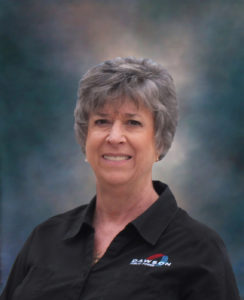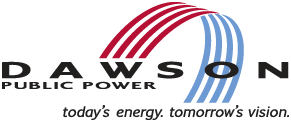
Dawson PPD General Manager Gwen Kautz
308-324-2386
gkautz@dawsonpower.com
June 2021
By Gwen Kautz
Dawson PPD General Manager
gkautz (at) dawsonpower.com
308-324-2386
How about everything?
Each year when our legislative body convenes, we hold our breath waiting for the next proposed statute change or new statute that will upend or improve our operating status. As with any industry impacted by legislation, those making decisions aren’t entirely knowledgeable about the nuances of electric distribution. Our legislators respond to what they perceive to be an inequity or need and move to correct that. That’s their job.
Most of us operate under the moniker “if it ain’t broke, don’t fix it,” and yet that’s what happens when our laws are changed. We stand around and tell everyone who will listen that “it wasn’t broke.” Maybe it was broke, but we were fine with the status quo.
On the other hand, if we aren’t “forced” to do something specific, what motivation would we have to change? As much as our legislators don’t understand our world, we don’t always understand theirs.
I spend a lot of time dealing with the nuances of electric distribution, which includes facing a decline of kilowatt hour sales due to appliance efficiencies and private renewables. I’ve said this before…What other company helps you find ways to NOT buy their product? We do. Energy conservation started in the early 1970s due to a shortage of oil and it has never been removed from our charter.
What other company helps you find ways to NOT buy their product? We do.
Let’s take a brief look at a couple of this year’s legislative proposals that probably impacted us the most thus far. It might surprise you that the Nebraska Rural Electric Association identified approximately 90 such bills out of a total of 684 submitted at the beginning of the 107th session. Some we support, some we oppose and others we maintain a neutral status.
LB83 – change the open meetings act to provide for virtual conferencing.
We’ve actually had the ability to hold six ‘telephonic’ meetings since 1993, but this further defines it and includes the video/virtual option. It also gives the governor expressed authority to allow us to have more than the allotted six during a declared emergency.
There were nearly a dozen bills introduced related to providing rural broadband.
Parts of four of these bills were passed. This is a really complicated issue. We want our customers to have access to high speed internet, but allowing just anyone to hang things on our poles gets messy. We must look at safety issues first, then cost. LB455 was defeated because this bill removed our decision-making authority over pole attachments, and it required us to comply with additional regulations. All these things would have added operating expenses to our electric customers and those costs must end up in our rates.
We support broadband deployments because our rural areas lack population density, which makes it more costly to serve. Senator Justin Wayne of Omaha even suggested the legislature should authorize public power to be a provider of choice because we’ve proved we serve these rural areas well. I can only speak for Dawson PPD, but we aren’t interested in being a direct provider.
We believe there are partnership opportunities with providers and that is probably a better path for us. At the very core is the same premise – our electric customers should not be responsible for costs necessary to provide rural broadband service.
We spend a great deal of time educating our legislative representatives related to changes or new bills introduced that may impact safety, our rates or our ability to serve customers efficiently. We don’t mind at all, but sometimes we must invite ourselves to the table. Term limits can make this a process that has to be repeated often as senators term-out.
Customers of Dawson PPD should know the only time we stand in the way of a proposed bill is when we know the change may ask us to raise rates or reduce our ability to provide reliable power. Sometimes, our input helps our senators change course towards a better path. Otherwise, we are all for changes made by the legislature that improves the quality of life for our customers.
